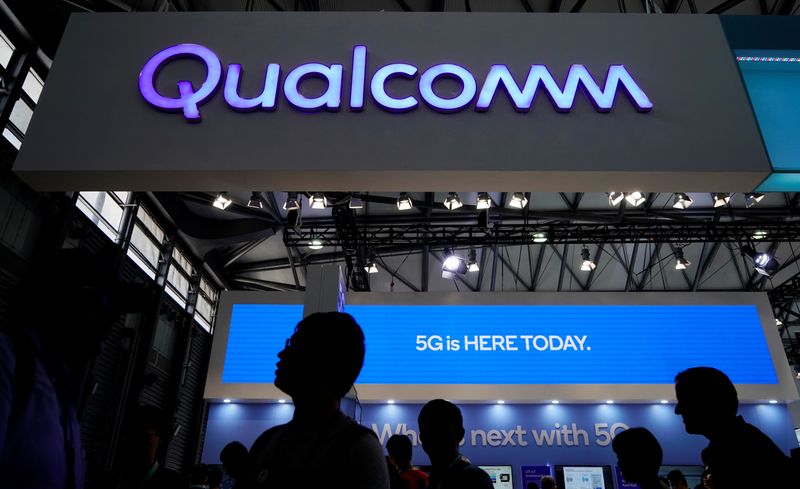By Jan Wolfe and Stephen Nellis
(Reuters) - The U.S. government's antitrust victory over chip supplier Qualcomm Inc (O:QCOM) drew tough questions for the Federal Trade Commision from a panel of three appellate judges in San Francisco on Thursday.
The U.S. 9th Circuit Court of Appeals heard oral arguments in a closely watched case the regulator brought against Qualcomm in early 2017.
San Diego, California-based Qualcomm supplies modem chips that connect phones and other devices to wireless data networks, but patent licensing drives most of its profits.
The company is fighting a May 2019 decision by U.S. District Judge Lucy Koh. That judge sided with antitrust regulators, writing that Qualcomm’s practice of requiring phone makers to sign a patent license agreement before selling them chips “strangled competition" and harmed consumers.
The panel of judges probed the FTC on how Qualcomm may have violated antitrust laws, even if the company did use its dominant position in the chip market to gain higher patent royalties.
"Anticompetitive behavior is prohibited under the Sherman Act. Hyper-competitive behavior is not. This case asks us to draw the line between the two," Judge Stephen Joseph Murphy III said.
The FTC argued Qualcomm applied an excessive "surcharge" to phone makers, charging them too high a price for patent licenses because the phone makers had to sign the deals to get Qualcomm's chips.
"Doesn't the Supreme Court say that patent holders have the right to price their patents? What would be anticompetitive about that?" Judge Johnnie Rawlinson asked.
Brian Fletcher, a law professor from Stanford University brought in by the FTC, responded that phone makers could not challenge the patent prices in negotiations or other court proceedings for fear of losing access to Qualcomm's chips.
Judge Consuelo María Callahan asked whether the FTC's case had conflated profits with anticompetitive behavior. She asked Qualcomm's attorney if Qualcomm's practices "helped Qualcomm make lots of money for a few years, is that in and of itself an antitrust violation, even if consumers paid higher prices for cell phones?”
Representing Qualcomm, Tom Goldstein responded no. He conceded Qualcomm was a monopoly, but argued that it broke no laws because its chips were better than rivals.
"It is the prospect that a monopolist will make a lot of money that encourages it to do so much innovation. That is what capitalism is intended to encourage," he said.

A decision in the appeal could take anywhere from several months to more than a year.